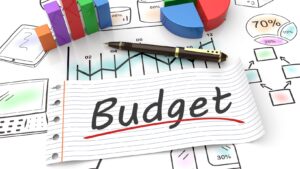In today’s fast-paced world, where financial stability often seems like a distant dream, mastering the art of budgeting emerges as a beacon of hope. Learning to budget isn’t just about keeping track of expenses or cutting back on coffee runs. It’s a transformative journey that empowers individuals to make informed financial decisions, ensuring a future where dreams and reality can meet without financial strain.
What Are Some Benefits Of Learning To Budget Now?
The Concept of Budgeting Explained
Budgeting stands as a critical practice in navigating today’s financial complexities, enabling individuals to allocate their earnings with intention and precision. It involves tracking income and expenses, setting spending goals, and planning for both short-term needs and long-term aspirations. Importantly, budgeting is not merely about restriction but about financial empowerment. It provides a clear overview of where money comes from and where it goes, allowing for informed decisions that align with one’s financial goals.
Common Misconceptions About Budgeting
 There are several misconceptions about budgeting that often deter individuals from incorporating it into their financial practices. One common myth is that budgeting is restrictive and limits the freedom to spend. However, budgeting actually offers financial freedom by providing structure and insights needed to make conscious choices about spending and saving. Another misconception is that budgeting is complicated and time-consuming. In reality, once set up, a budget is straightforward to maintain and can be adjusted as financial situations change, making it a versatile tool for financial health. Lastly, some believe budgeting is only for those with financial problems or significant earnings. Budgeting benefits everyone, regardless of income level, by instilling discipline, enhancing savings, and paving the way for financial success.
There are several misconceptions about budgeting that often deter individuals from incorporating it into their financial practices. One common myth is that budgeting is restrictive and limits the freedom to spend. However, budgeting actually offers financial freedom by providing structure and insights needed to make conscious choices about spending and saving. Another misconception is that budgeting is complicated and time-consuming. In reality, once set up, a budget is straightforward to maintain and can be adjusted as financial situations change, making it a versatile tool for financial health. Lastly, some believe budgeting is only for those with financial problems or significant earnings. Budgeting benefits everyone, regardless of income level, by instilling discipline, enhancing savings, and paving the way for financial success.
Immediate Benefits of Learning to Budget
Understanding the immediate benefits of learning to budget is essential for anyone seeking to manage their finances more effectively. This skill not only lays the foundation for a secure financial future but also offers numerous advantages in the present.
Improved Financial Awareness
Learning to budget leads to improved financial awareness. Individuals become more attuned to their financial situation, gaining insights into their income streams, expenditures, and spending habits. By keeping a close eye on their finances, they’re better equipped to make adjustments that align with their financial goals. For instance, recognizing unnecessary expenses or identifying areas where they can save more. This heightened awareness acts as a catalyst for making informed decisions, such as cutting down on impulsive buys or opting for more budget-friendly options without compromising quality of life.
Control Over Your Spending
 Gaining control over spending is another immediate benefit of learning to budget. It empowers individuals to prioritize their expenses, ensuring that essential bills and savings aren’t compromised by unplanned spending. By allocating set amounts to different categories of spending, they can avoid the pitfall of living paycheck to paycheck. This proactive approach to managing finances fosters a sense of financial discipline, encouraging the allocation of funds to savings and investments, thus paving the way for wealth accumulation over time. Moreover, by mastering the art of budgeting, individuals find themselves better positioned to handle unexpected expenses without resorting to debt, further solidifying their financial stability.
Gaining control over spending is another immediate benefit of learning to budget. It empowers individuals to prioritize their expenses, ensuring that essential bills and savings aren’t compromised by unplanned spending. By allocating set amounts to different categories of spending, they can avoid the pitfall of living paycheck to paycheck. This proactive approach to managing finances fosters a sense of financial discipline, encouraging the allocation of funds to savings and investments, thus paving the way for wealth accumulation over time. Moreover, by mastering the art of budgeting, individuals find themselves better positioned to handle unexpected expenses without resorting to debt, further solidifying their financial stability.
Long-Term Financial Security
Learning to budget now paves the way for long-term financial security. Mastering budgeting skills helps individuals save for future needs, such as retirement or emergency funds, ensuring financial stability. By setting aside money regularly, people prepare for unforeseen expenses, reducing the reliance on debt. Additionally, budgeting facilitates investment in wealth-building opportunities, further enhancing financial security in the long run. This disciplined approach to managing finances not only secures future well-being but also instills a sense of financial freedom, allowing individuals to enjoy life’s pleasures without compromising their fiscal health.
Psychological and Emotional Advantages
Mastering budgeting skills not only enhances financial stability but also offers significant psychological and emotional advantages. Individuals who learn to budget experience reduced stress, as they gain clarity on their financial situations, alleviating worries about covering expenses or saving for the future. This financial clarity brings peace of mind, knowing that they are prepared for unexpected financial hurdles. Moreover, the sense of accomplishment from sticking to a budget boosts confidence, empowering them to set and achieve more ambitious financial goals.


